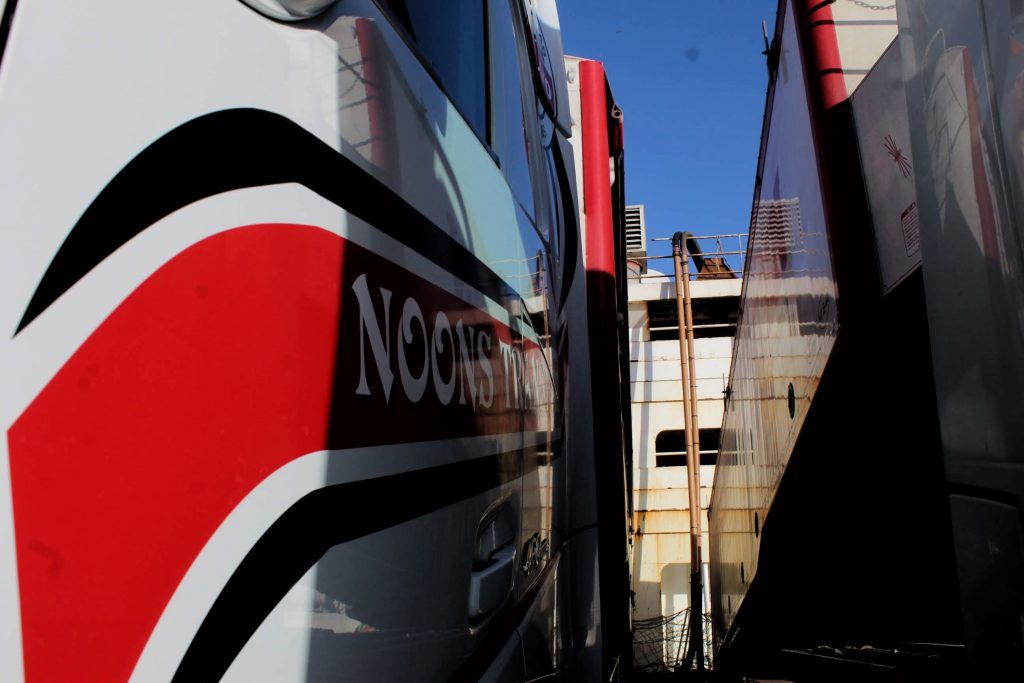After waiting a number of weeks for payment for cattle shipped to Algeria in mid-April, affected farmers have now been paid in full, AgriLand understands.
Just under 1,100 bulls and bullocks were shipped via the Sarah M to the North African country on April 16 – the first ever boatload and the second consignment of Irish cattle to Algeria.
This boatload was organised by Wicklow-based exporting company, Roundwood Park Livestock. Farmers supplying cattle for the shipment were informed that they would receive payment once the animals were loaded onto the boat.
However, while some farmers were indeed paid, others were left awaiting payment. The situation caused significant concern among some farmers that supplied a large number of cattle for the consignment.
In response to queries on this, Roundwood Park Livestock told AgriLand that an issue arose regarding the monetary transfer from Algeria to Ireland.
“There were a couple of teething problems that we didn’t envisage,” the exporting firm acknowledged.
The firm continued: “It was our first shipment and the money was paid by Government. The money was always there; we just had to get it from Algeria to Ireland.

Feed blown onto the Atlantic M before its departure to Libya earlier this year. Image source: Jane Smith
“There is no direct bank link between Algeria and Ireland, so it has to go through other countries to get here and, with Covid-19 and people working from home, that put a hindrance to it.
“But the farmers involved were incredibly supportive and wanted this to succeed,” the exporter said.
However, as the days passed by farmer concerns mounted.
Then late last week, Dr. Ahmed Salman – of Roundwood Park Livestock – met with those still awaiting payment to assure them that the situation, and their payment, was in hand.
One farmer, who supplied close to 100 cattle for the shipment, told AgriLand the meeting was “constructive” and everything was “frank and open”.
“There were a few technical hitches with relation to the banks and the transfer of money from Algeria to here in Ireland. We had a meeting with Dr. Salman and he filled us in on what was happening and we got paid on Tuesday morning (May 5).
“Of course, we were all concerned at that time, but Dr. Salman was open and honest; the firm always kept in touch and answered and returned calls.
“That’s what gave me confidence; the whole time they weren’t shying away and I would supply cattle again,” the farmer said.
Prior to payment, AgriLand also contacted the Department of Agriculture, Food and the Marine on the matter.
In a statement, a department spokesperson said: “The department has no involvement in the commercial aspects of live exports.
“The department facilitates the trade through a rigorous health certification process, and ensuring that exports meet the highest welfare standards during transport.
“It also supports the trade by prioritising efforts to gain access to new markets and to deepen existing markets,” the statement concluded.
The Sarah M has now successfully returned from Algeria to Irish shores and is currently docked in Waterford Port. A second consignment organised by Roundwood Park Livestock is due to be loaded early next week, with up to 1,200 bulls and bullocks scheduled to depart.
France and Spain are the chief exporters of live cattle – mainly bulls – to the North African country. Cattle originating from these countries are, by and large, purebred are uniform in colour.
However, while both Irish bullocks and bulls of various breeds were exported, Dr. Salman said that the Algerian importers were “very impressed” with the quality of the cattle and indeed the quality of the meat when slaughtered.
Roundwood Park Livestock said that more boatloads are on the cards with the Sarah M scheduled to return to Ireland following the shipment next week.

